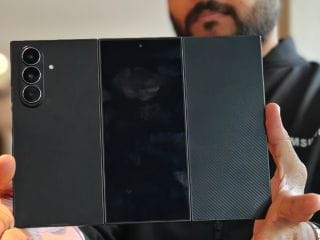- Home
- Internet
- Internet News
- Microsoft Reveals Plans to Store Data in DNA
Microsoft Reveals Plans to Store Data in DNA

Microsoft is planning to start storing its data on strands of DNA within the next few years, the company's computer architects have revealed.
Microsoft expects to have an operational storage system using DNA within a data centre by the end of the decade, according to a report in MIT Technology Review.
Currently, one of the best and cheapest ways to store a lot of information in a small space is magnetic tape which is rugged enough to hold information for up to 30 years.
But as the data generation has reached an exploding stage, even magnetic tapes seem to be of little use.
Therefore, Microsoft computer architects are considering a biological material such as DNA to be an odd choice for backing up large amounts of digital information, ScienceAlert reported on Saturday.
Its ability to pack enormous amounts of data in a tiny space has been clear for more than 70 years.
"While strings of nucleic acid have been used to cram information into living cells for billions of years, its role in IT data storage was demonstrated for the first time just five years ago, when a Harvard University geneticist encoded his book - including jpg data for illustrations - in just under 55,000 strands of DNA," the report said.
With the evolving technologies, scientists have been able to record 215 petabytes (215 million gigabytes) of information on a single gram of DNA.
But scientists face a challenge in recording data in the form of a nucleic acid sequence.
The tech giant demonstrated its DNA data storage technology last year by encoding roughly 200 megabytes of data in the form of 100 literary classics in DNA's four bases in a single process.
"This process would have cost around $800,000 (roughly Rs. 5.1 crores) using materials on the open market, meaning it would need to be thousands of times cheaper to make it a competitive option," the report stated.
But the speed of data stored on DNA strands was as slow as 400 bytes per second. It poses as another challenge for the company to get around 100 megabytes per second to be feasible.
According to the ScienceAlert report, new technologies have been seeing the cost of gene sequencing drop in recent years, which hints that Microsoft's end of the decade target may be realistic.
Catch the latest from the Consumer Electronics Show on Gadgets 360, at our CES 2026 hub.
Related Stories
- Samsung Galaxy Unpacked 2025
- ChatGPT
- Redmi Note 14 Pro+
- iPhone 16
- Apple Vision Pro
- Oneplus 12
- OnePlus Nord CE 3 Lite 5G
- iPhone 13
- Xiaomi 14 Pro
- Oppo Find N3
- Tecno Spark Go (2023)
- Realme V30
- Best Phones Under 25000
- Samsung Galaxy S24 Series
- Cryptocurrency
- iQoo 12
- Samsung Galaxy S24 Ultra
- Giottus
- Samsung Galaxy Z Flip 5
- Apple 'Scary Fast'
- Housefull 5
- GoPro Hero 12 Black Review
- Invincible Season 2
- JioGlass
- HD Ready TV
- Laptop Under 50000
- Smartwatch Under 10000
- Latest Mobile Phones
- Compare Phones
- Realme Neo 8
- OPPO Reno 15 FS
- Red Magic 11 Air
- Honor Magic 8 RSR Porsche Design
- Honor Magic 8 Pro Air
- Infinix Note Edge
- Lava Blaze Duo 3
- Tecno Spark Go 3
- HP HyperX Omen 15
- Acer Chromebook 311 (2026)
- Lenovo Idea Tab Plus
- Realme Pad 3
- HMD Watch P1
- HMD Watch X1
- Haier H5E Series
- Acerpure Nitro Z Series 100-inch QLED TV
- Asus ROG Ally
- Nintendo Switch Lite
- Haier 1.6 Ton 5 Star Inverter Split AC (HSU19G-MZAID5BN-INV)
- Haier 1.6 Ton 5 Star Inverter Split AC (HSU19G-MZAIM5BN-INV)

















